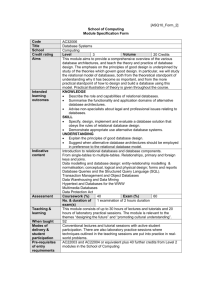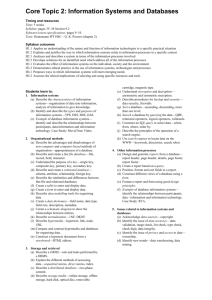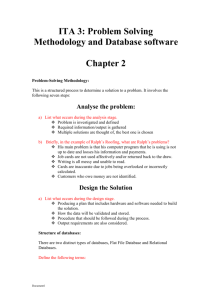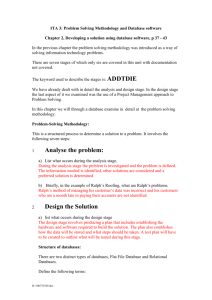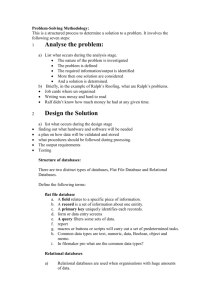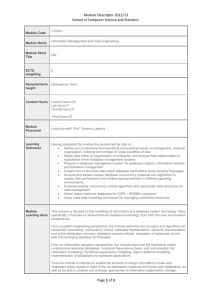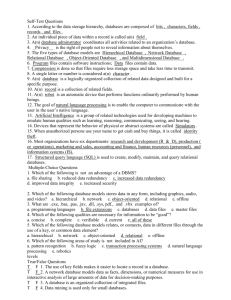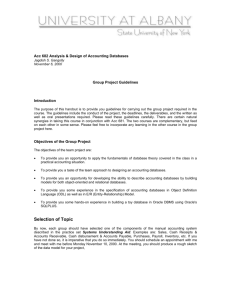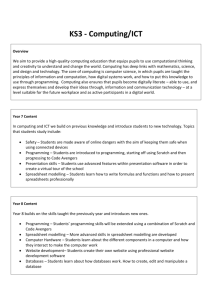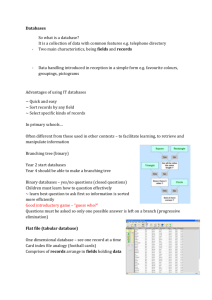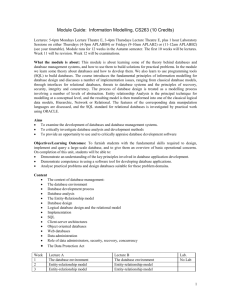Study program
advertisement
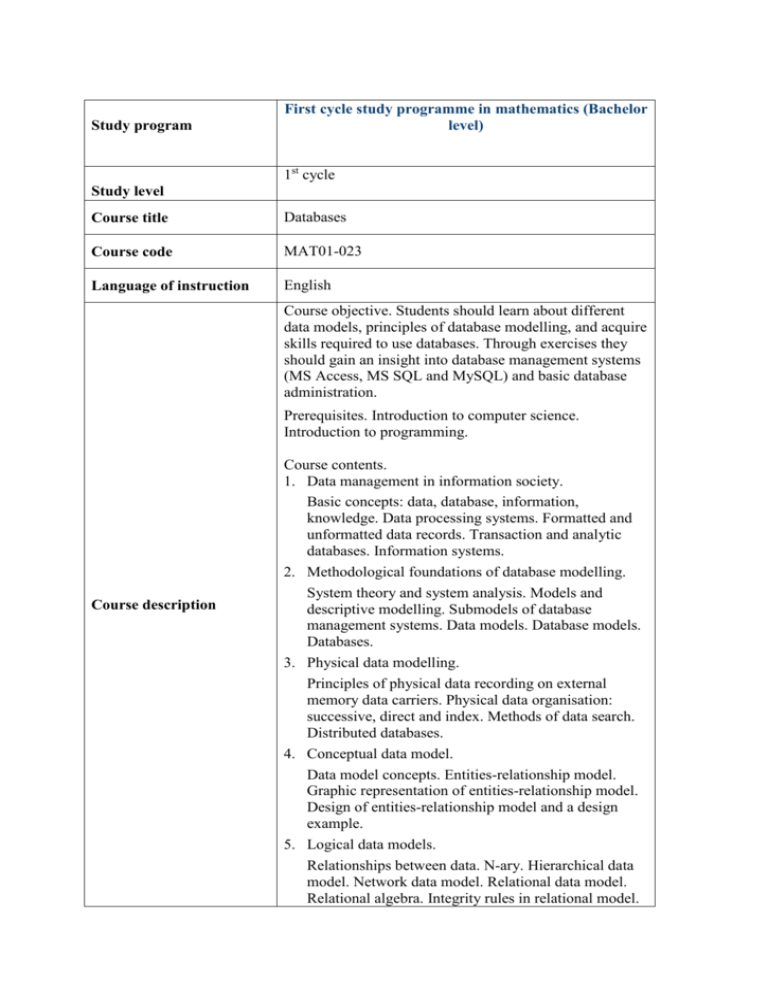
Study program First cycle study programme in mathematics (Bachelor level) 1st cycle Study level Course title Databases Course code MAT01-023 Language of instruction English Course objective. Students should learn about different data models, principles of database modelling, and acquire skills required to use databases. Through exercises they should gain an insight into database management systems (MS Access, MS SQL and MySQL) and basic database administration. Prerequisites. Introduction to computer science. Introduction to programming. Course description Course contents. 1. Data management in information society. Basic concepts: data, database, information, knowledge. Data processing systems. Formatted and unformatted data records. Transaction and analytic databases. Information systems. 2. Methodological foundations of database modelling. System theory and system analysis. Models and descriptive modelling. Submodels of database management systems. Data models. Database models. Databases. 3. Physical data modelling. Principles of physical data recording on external memory data carriers. Physical data organisation: successive, direct and index. Methods of data search. Distributed databases. 4. Conceptual data model. Data model concepts. Entities-relationship model. Graphic representation of entities-relationship model. Design of entities-relationship model and a design example. 5. Logical data models. Relationships between data. N-ary. Hierarchical data model. Network data model. Relational data model. Relational algebra. Integrity rules in relational model. Database shaping. SQL – non-procedural language for working with a relational database. Translating an entities-relationship model into a relational model. Object model. UML. File model. 6. Logical modelling of analytic data. Data warehouse. Dimensional model of data warehouse. Methods of data warehouse design. Operations in a dimensional model. Analytical data processing. Discovering knowledge out of data. 7. Structured databases. Database management systems. Codd's rules and relational databases. Data safety. Log of transactions. Basic administration of database management systems. Guidelines for connecting programme application and database. XML and integration of heterogenous data sources. 8. Semi-structured databases. Textual and multimedial databases (document bases). Document management. Web as a base of semistructured data. Search methods. Portals – usage and design. Form of teaching consultative teaching Form of assessment Students' progress is assessed regularly during the semester through preliminary tests and homework assignments. At the end of the course students take the examination consisting of a written and an oral part. Number of ECTS 5 Class hours per week 2+2+0 Minimum number of students Period of realization winter semester Lecturer Branimir Dukić, Associate Professor
